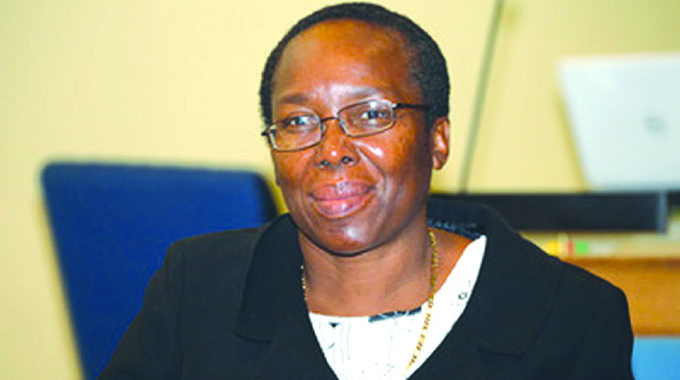Zim’s child marriage shocker

Crime Reporter
NEARLY 34 percent of girls under the age of 18 are married countrywide, a statistic that has shocked the Zimbabwe Gender Commission (ZGC).
The commission said it was concerned about the surge in child marriages and the exploitation of young women.
According to the Zimbabwe Statistics Agency (Zimstat), 2 percent of boys also get married before reaching the age of 18.
Addressing journalists in Harare yesterday, ZGC chairperson, Commissioner Margaret Mukahanana-Sangarwe, said child marriage was a violation of human rights.
“Child marriage is a violation of human rights and the Zimbabwe Gender Commission is concerned about the surge in the practice as well as the exploitation of young women and girls. The Zimbabwe Statistics Agency indicates that 33,7 percent of girls under 18 are married, which means that one in three girls under 18 are married.
“Zimstat also cited that, 2 percent of boys get married before reaching the age of 18 years. We therefore need to take urgent action to address the scourge. Collectively, we have a responsibility to ensure that children, both boys and girls, enjoy their fundamental rights.”
Comm Mukahanana-Sangarwe said the provision of a conducive environment for children to flourish and realise their full potential through ensuring safe spaces that were free from deranging practices of child marriages, sexual exploitation and abuse as espoused in various United Nations human rights instruments and African protocols, was a requisite and obligatory.
She said the Children’s Act compelled the State to put in place measures that ring-fenced protection of girls and boys inclusive of those who have risk of vulnerability.
“The Constitution of Zimbabwe mandates the State to adopt policies and measures to ensure that children are protected from maltreatment, neglect or any form of abuse. The Constitution further requires the State to take measures to ensure that children are not pledged in marriage and sets the minimum age of marriage at 18 years.
“Given these parameters, protection of girls from any malpractices and social ills that may be sanitised through religious, traditional customs, belief systems and cultural norms is non-negotiable. Hence, the commission is duty bound to fulfil its constitutional mandate to ensure the prevailing of social justice and remedying of violations of rights relating to gender,” Comm Mukahanana-Sangarwe said.
Sustainable Development Goal (SDG) No. 5, she said, affirmatively speaks on gender equality in all spheres and the need to foster initiatives and opportunities for children through an inclusive approach in line with the 2030 SDG Agenda of “Leaving No One Behind”.
“Therefore, it is imperative to accelerate efforts to ensure realisation of the goal by way of changing mindsets, demystifying unsafe doctrines and attitudinal beliefs that continue to instigate the propagation of child marriages, sexual exploitation and abuse of young girls.”
Comm Mukahanana-Sangarwe said they welcome and note the progress made on the legislative front through the Marriages Laws Amendment Bill, which among other things, prohibits the marriage of minors and the pledging of girls and women in marriage.
The ZGC also noted with concern contradictions on the age of consent to marriage visa-vis the age of sexual consent and called upon all duty bearers to iron out the inconsistencies.
Comm Mukahanana-Sangarwe said pursuant to its mandate, the ZGC will be conducting a multi-sectoral stakeholders’ inquiry on child marriages, sexual exploitation and abuse of young girls.
She said this was largely informed by 15-year-old Anna Machaya’s unfortunate death on July 16 last year while giving birth, triggering the ZGC into publishing a notice in the Government Gazette on September 24 signalling their intention to launch a nationwide investigation and public inquiry on Sexual Exploitation and Abuse of Young Girls, including those with disabilities.
The multi sectoral stakeholders’ inquiry started this week in Harare (ran from April 4 to April 8).
It will be followed by provincial hearings starting with five spotlight provinces namely Harare, Manicaland, Mashonaland Central, Mashonaland West and Matabeleland South from May 8 to June 10.
The outcome of the inquiry will be a report directed to Parliament and other duty bearers for implementation in terms of the Zimbabwe Gender Commission Act.










Comments